International organizations sprout like mushrooms to echo each others' false narratives and pay the bills. MPOX, the GPMB, WHO, UN and World Bank, and their incestuous relationship
I made this as short as I could. The spider's web of organizations whose job is to disinform us is huge, rich and influential. Watch for the repetitive buzzwords!
“The UN system is comprised of more than 30 affiliated organizations, programs, funds, and specialized agencies, with their own membership, leadership, and budget processes. These entities work with and through the UN Secretariat to promote peace and prosperity.
UN funds and programs are financed through voluntary rather than assessed contributions.”
This allows nations to donate to many different agencies without citizens being aware the money is all going to practically the same place and the same group of people to push a similar set of policies.
But these 30 UN-associated entities, which include the World Bank, are not enough to get the globalist program pushed through globally. After all, they do have rules about giving jobs to people from around the world, and letting member nations appoint staff, and so there can be push-back within the agencies against various globalist agendas.
So new institutions were formed, sometimes connected to these UN agencies, sometimes allegedly connected or unconnected, sometimes as donors or as think tanks, to steer policy internationally as well as within the UN system itself. Just as we have so many NGOs in Washington whose purpose is to steer US policy.
Many of these new institutions were created since 2000, by people like Bill Gates: GAVI, CEPI, etc. Some are older organizations that Bill Gates has basically co-opted and taken over, via donations, like CGIAR, supposed to help developing countries with agriculture, but now focused on climate change:
Some were created as partnerships by the Wellcome Trust, which also stepped up its game at the WHO in 2018:
Building on many years of collaboration, Wellcome became a non-state actor in official relations with the WHO in February 2018. This means we can play a more active part in WHO processes, for example by participating at sessions of its governing bodies and organising side events.
At a strategic meeting with the WHO in November 2018 we identified our shared goals, and the experience, networks and resources we can pool to work on them together.
Strategic priorities
Our partnership with the WHO focuses on:
epidemics and other health emergencies
antimicrobial resistance
global health research and development.
Pretty obvious what WELLCOME (then under the stewardship of Jeremy Farrar) was doing to control the WHO agenda: grabbing the epidemic/pandemic space, pushing One Health with the antimicrobial resistance bogeyman that has failed to materialize as a significant threat but is kept alive through bad animal husbandry practices, and global health R and D, whatever they mean by that.
Then there are independent organizations that are tenuously related to the WHO and World Bank to provide the new organization with cachet, otherwise we would ask, “Who made you the boss of me?”
The Global Preparedness Monitoring Board (GPMB) is such an “independent” organization. The GPMB was established in 2018 following the recommendation of the High-Level Panel on the Global Response to Health Crises, a committee appointed by the UN Secretary-General in 2015 and tasked with calling for a GPMB.
The Global Preparedness Monitoring Board (GPMB) is an independent monitoring and accountability body to ensure preparedness for global health crises. Co-convened by the Director-General of the World Health Organization and the President of the World Bank, the GPMB is comprised of globally-recognized leaders and experts from a wide range of sectors, including global health, veterinary epidemiology, environment, human rights, economics, law, gender, and development.
It is tasked with providing an independent and comprehensive appraisal for policy makers and the world about progress towards increased preparedness and response capacity for disease outbreaks and other emergencies with health consequences. In short, the work of the GPMB is to chart a roadmap for a safer world.
https://www.gpmb.org/about-us#tab=tab_1
The Board is also responsible for producing a Monitoring Framework that provides a single, authoritative, and actionable roadmap for global preparedness.
Get it? We will be your single voice for truth about pandemic preparedness. We own the science. We will monitor your compliance. The GPMB is also an entity working behind the scenes to get the WHO Pandemic Treaty etc. pushed forward.
It is mind-boggling how many of these spin-off organizations there are. Here is another one, created in 2021: G20 High Level Independent Panel on Financing the Global Commons for Pandemic Preparedness and Response.
But back to the GPMB. Who were its leaders when it was founded 6 years ago? Here are just 5 of about a dozen:
I talked about Gro in Japan and James Corbett also featured her, the creator of Sustainable Development (which has nothing to do with development) and climate globalist extraordinaire.
Mr. As Sy is not a medical person, but he is a loyal apparatchik who was included in many of Fauci’s (FOIA’ed) emails early in the pandemic.
The rest are all MDs. George Gao, who was then head of the Chinese CDC, is an old buddy of Jeremy Farrar’s from Oxford. He attended the Event 201 exercise in 2019 and the monkeypox tabletop exercise in early 2021. You know Jeremy and Tony Fauci already.
This little group was intended to set the entire world on the right course regarding pandemics and biowarfare and the WHO.
Those members moved on, though there remain some power players on the GPMB now. They are trying hard to stay relevant. Today they issued a report, which the WHO released. In August 2024 they tried to build up Monkeypox as a big threat requiring “equity,” i.e., vaccines for Africa, free and lots of them:
However, today the WHO had to admit, yet again, that they can’t find confirmed deaths from $moneypox. Zero deaths over the past 6 weeks with confirmed monkeypox, though there are hundreds of deaths they are guessing might have had monkeypox.
(I love being proven right.) Below is today’s report from the GPMB, just so you know they continue to try and remain relevant and authoritative.
The other thing they are desperately trying to do is to counter the REPPARE reports by David Bell et al. that showed pandemics are essentially irrelevant to public health, as so few people overall have been affected over recent decades, if you don’t include lab-derived COVID. Here is REPPARE’s latest report, but there are more here, which completely dispute the GPMB, WHO and the other false, hyped narratives about the dangers of pandemics.
Here is the GPMB’s press release of today, bolded by me:
Monday, 14 October 2024
As co-convenor with the World Bank Group, WHO is sharing this press release and report, on behalf of the Global Preparedness Monitoring Board (GPMB). Interviews with the Board members are available on Monday, 14 October. Please contact Kate Thompson (thompsonk@who.int) or John Butler (butlerj@who.int) for more details.
PRESS RELEASE
New risks raise pandemic threat on a global scale
14 October 2024 – Recent outbreaks of Marburg virus, Mpox and the latest strain of avian influenza (H5N1) are a stark reminder of the world’s vulnerability to pandemics. In 2024 alone, 17 outbreaks of dangerous diseases have already occurred. Each new outbreak exposes fault lines in the existing pandemic prevention architecture and global readiness to respond to disease outbreaks.
A plethora of risks increase the likelihood of new pandemics according to a new report from the Global Preparedness Monitoring Board (GPMB). The report, launched at the 15th World Health Summit in Berlin, outlines 15 key drivers of pandemic risk, categorized into five distinct groups: social, technological, environmental, economic, and political.
GPMB, an initiative supported by the World Health Organization and the World Bank, tracks the drivers of pandemic risk and oversees global preparedness. The report stresses the urgency of understanding the global vulnerability to threats and calls for a radical reset of the collective approach to pandemic preparedness.
Lack of trust between and within countries, inequity, intensive farming and the likelihood of human to animal crossover are among the key threats outlined in the report. The report also identifies new risks outside of the traditional health factors.
Digital connectivity has enabled scientists to quickly sequence and share pathogen data and tailor responses ever faster. However, this digital footprint leaves health systems and societies exposed. Cyber-attacks, heightened biosecurity threats, and the rapid spread of misinformation all increase the risk of a pandemic.
“The next pandemic won't wait for us to perfect our systems,” said Joy Phumaphi, GPMB Co-Chair and former Minister of Health to Botswana. “We must invest now in resilient and equitable primary healthcare systems to withstand the challenges of tomorrow.”
The report identifies the complex and interdependent factors which shape the risk of pandemics. However, it also stresses that willingness to build flexibility into the response, proactively protect society and invest in collaborative efforts can significantly reduce risk and enhance preparedness.
To effectively protect themselves, all nations must strengthen their health systems, prioritize social protection, and ensure that essential health services are available to all communities, particularly the most vulnerable and disadvantaged. GDP alone is no measure of resilience to a pandemic.
Preparedness should incorporate strategies spanning across the human, animal, and environmental health interfaces. The report calls for increased collaboration across sectors to mitigate risks associated with pandemics, recognizing that the health of one sector is intricately linked to the health of others. [The One Health fairy tale—Nass]
“We have a narrow window of opportunity to rethink global preparedness: to assess risks that extend well beyond the health sector, and to address some of these far more proactively, in a way that is adapted to each context,” said H.E., Ms. Kolinda Grabar-Kitarović, GPMB Co-Chair and former President of Croatia. “Vigilance, adaptability and collaboration must define our preparation now, so that is it baked-in to the response”.
The report provides a framework for policymakers to adapt existing health strategies and enhance protective measures against future pandemics. This includes ensuring prevention and response plans are regularly reviewed and flexible enough to respond to all situations. The next pandemic will not follow the same path as COVID-19, lessons learned from that experience should guide but not define preparedness.
Resilience in future health emergencies is contingent on investment in research and development, improved technology, equitable health infrastructure and an enhanced understanding of the dynamic nature of all pandemic risk drivers. In today’s interconnected world, the global community must take collective responsibility for prevention and response to disease, rather than considering preparedness as an individual country or sector-level activity.
The report is available on the GPMB website.
Note to editors:
The Global Preparedness Monitoring Board (GPMB) is an independent monitoring and accountability body to ensure preparedness for global health crises. Co-convened by the Director-General of the World Health Organization and the President of the World Bank, the GPMB is comprised of globally recognized leaders and experts from a wide range of sectors, including health, animal health, environment, human rights, economics, law, gender, and development. It is tasked with providing an independent and comprehensive appraisal for policy makers and the world about progress towards increased preparedness and response capacity for disease outbreaks, epidemics, and pandemics. In short, the work of the GPMB is to chart a roadmap for a safer world.

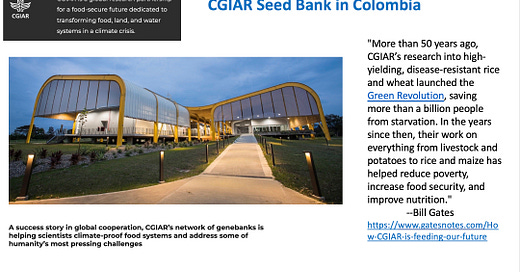



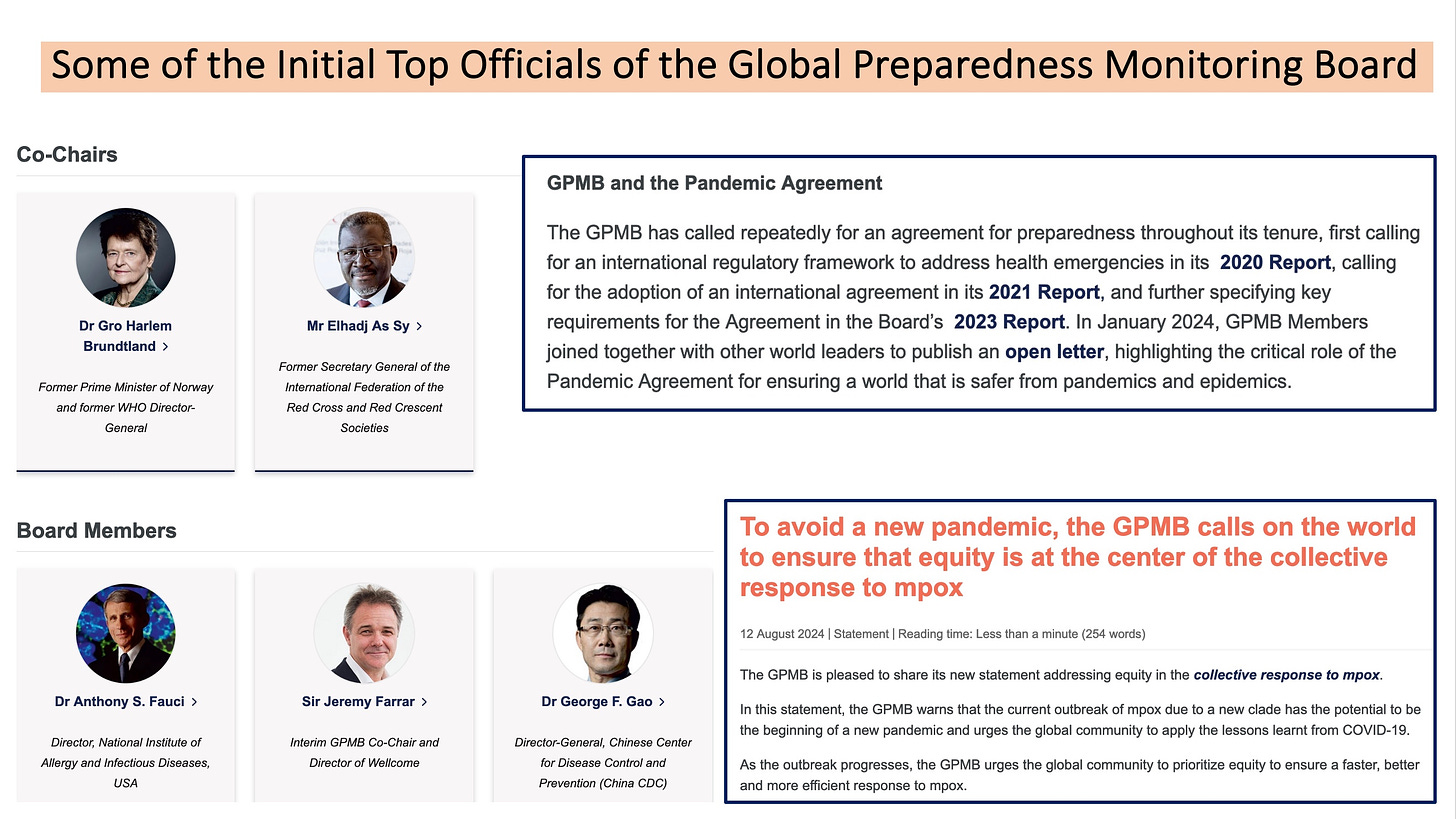
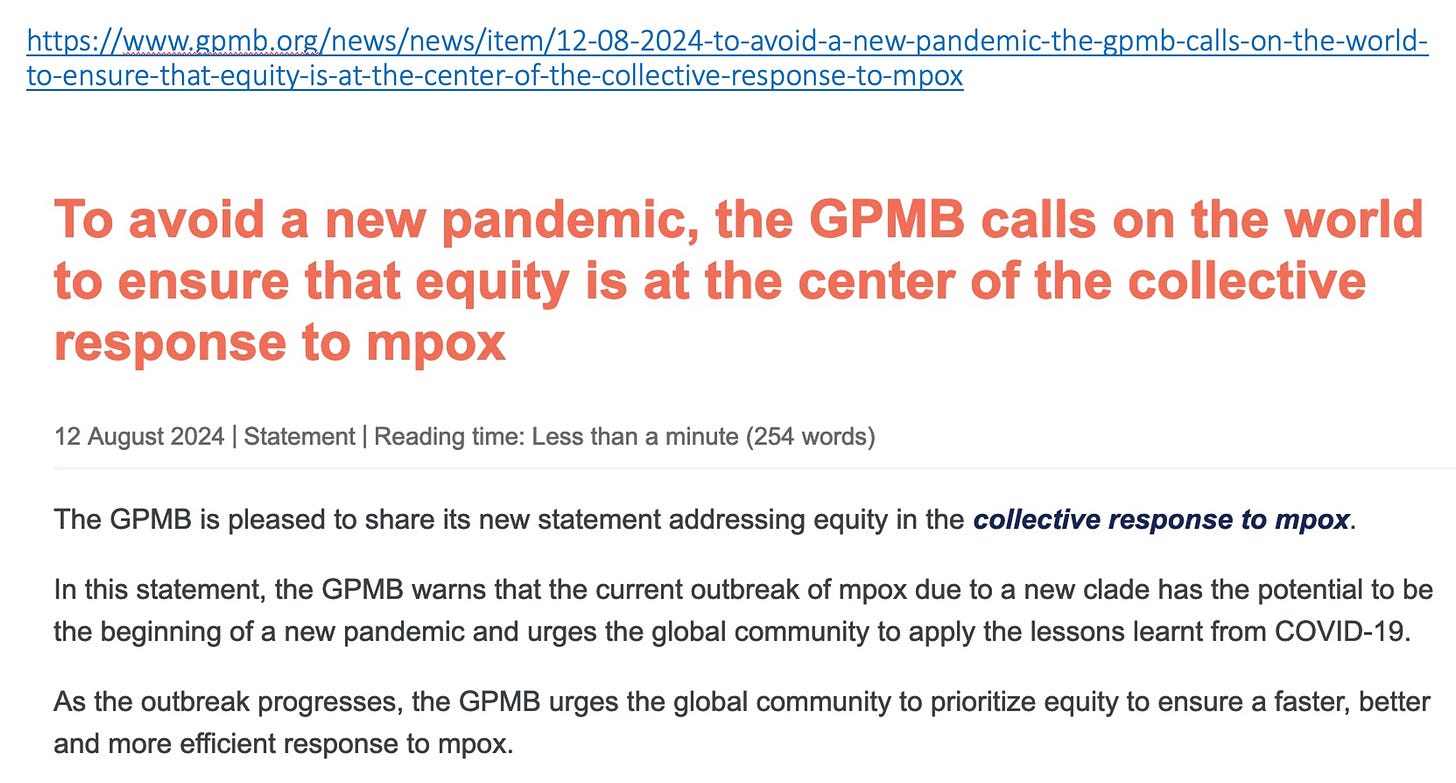
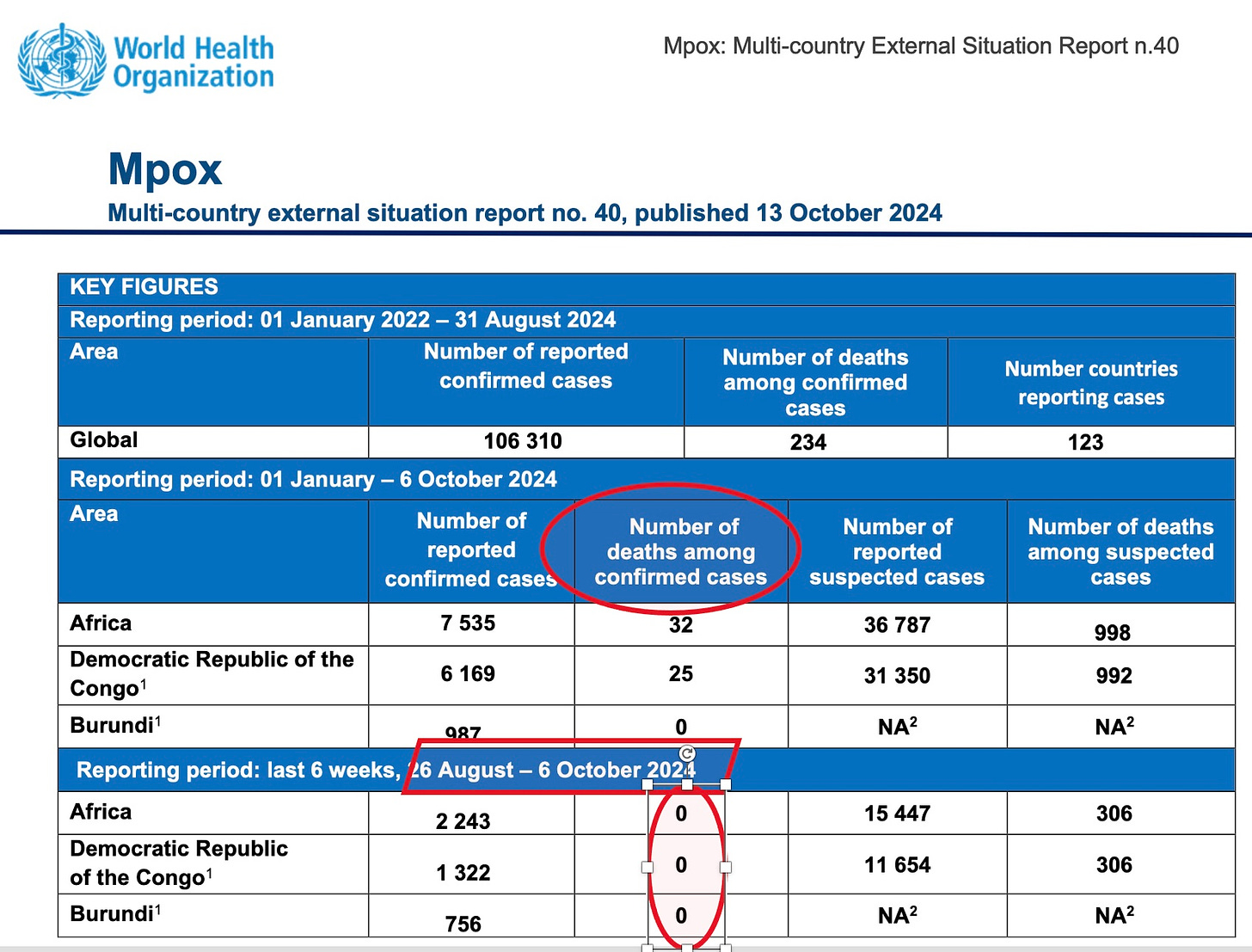
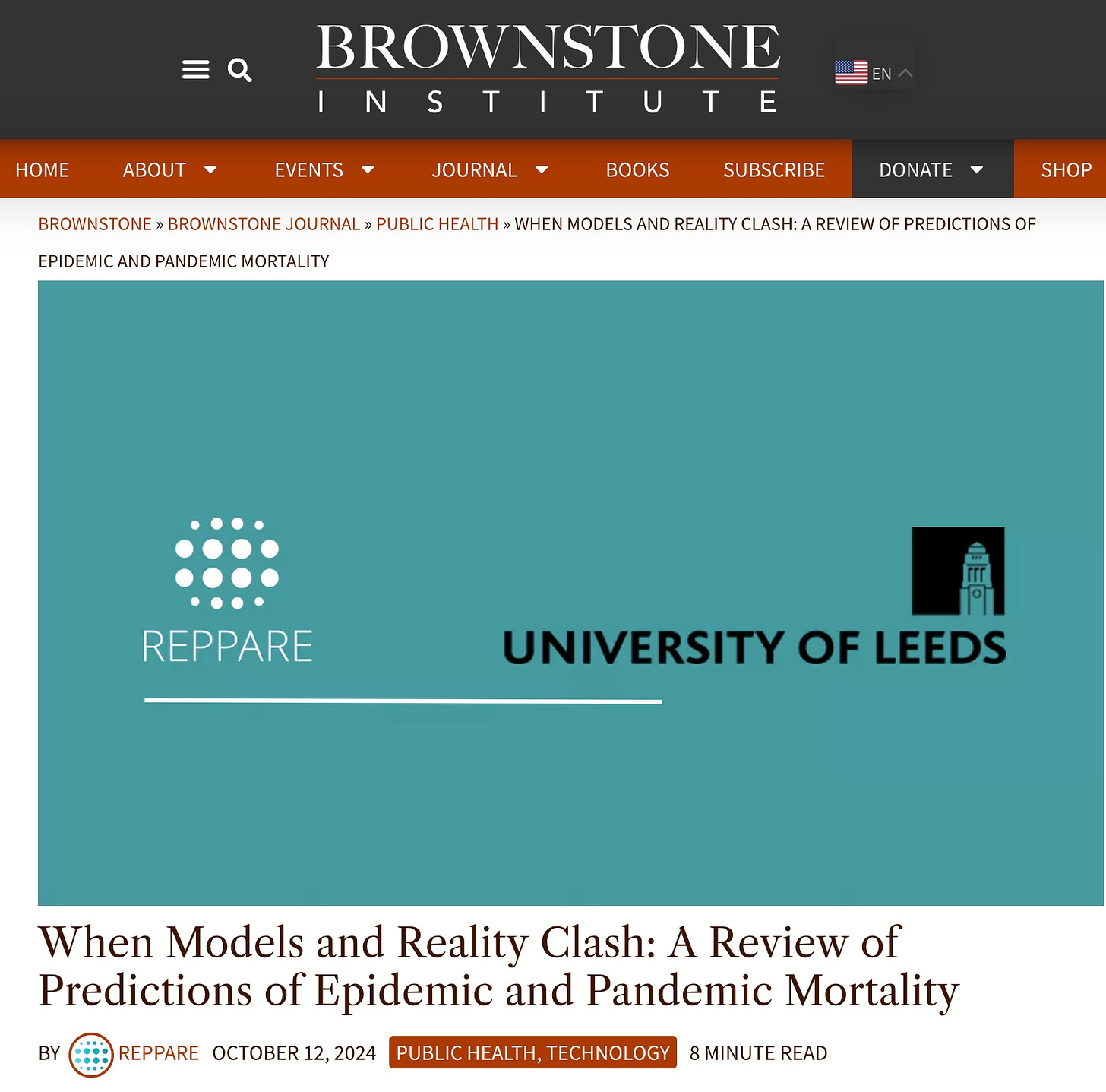

Doctor who volunteers in war zones around the world says he never saw injuries like in Gaza. Thought it was an isolated psycho in his area. 12 young dead kids shot in the head, point blank. Gets stateside another doc witnessed same thing completely separate area.
If they can't stop that, then why give them money for anything else?
Who cares about pandemics when mass murderers drop illegal cluster bombs, US taxpayer provided, from aircraft against people with no air force.
All the globalist NGO and other globalist entities do nothing but suck wealth from the Main Street and try to garner ever more control. My adage is self sufficiency and local neighbor helping local neighbor. In my household we save our own seed, grow most of our food, do not have to rely on electricity and that includes solar and generators - we have set ourselves up to be able to do it all without power: heat, water lifting, cooking, lighting, water purification. And are working towards teaching others these same skills as we all may have to rely on our ingenuity for many thing in the future and that includes herbal medicines etc.